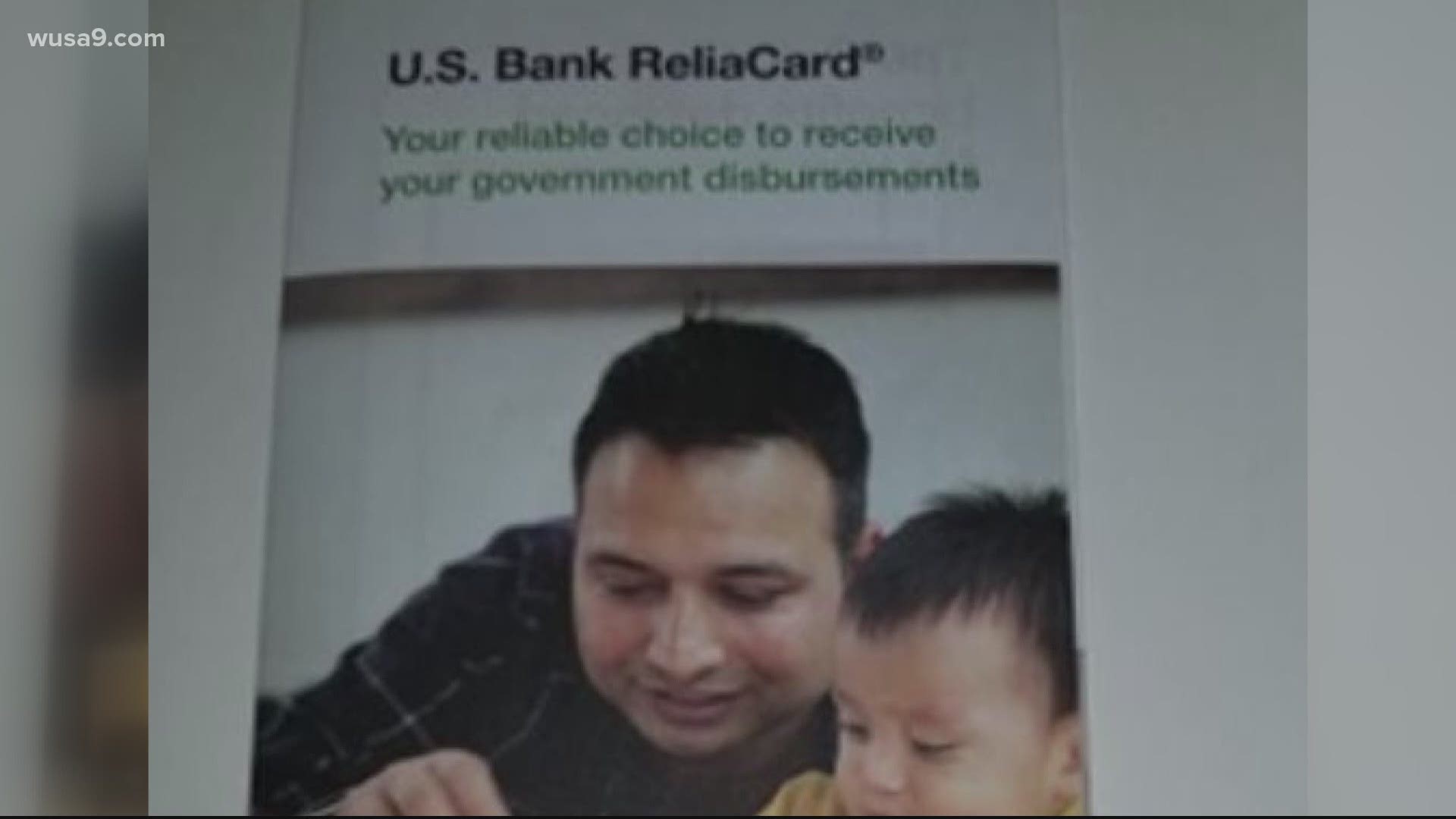UPPER MARLBORO, Md. — Shannon Brown knows all too well the threat cyber criminals pose to the unsuspecting. She’d heard the stories and seen the reports. Brown could not have imaged she, too, would find herself caught up in a web of digital deception.
“I don't want to be held liable for something I did not do,” said Brown who lives in Upper Marlboro. “The very fact in knowing that someone is using my address is very unnerving.”
Brown reached out to WUSA9 on Facebook explaining she received a letter from US Bank with a Reliacard. The letter thanked Brown for contacting them about a recent change of address. Brown said she hadn't changed her address. Growing more concerned, she reached out to the bank.
When she called, she was told the Reliacard she received is meant for unemployment benefits. Brown is a longtime federal employee. She didn't need nor request unemployment benefits. After searching online, she watched reports of other people with Reliacards they didn't request for benefits they didn't apply for.
It isn't clear if someone tired to file a claim from Maryland or from another state.
The situation, though, has grown into a big problem for states across the country. A few weeks ago, Maryland Governor Larry Hogan announced nearly 50,000 fraudulent unemployment claims were uncovered.
Scammers were trying to swindle more than 500 million dollars in unemployment benefits which are hard to get because of processing delays and an overwhelming number of applicants
"There are people that are waiting for unemployment and can't get unemployment", explained Brown. "Is there money on this card? I have no idea. It's very frustrating to call the state of Maryland and not get an answer."
The Federal Trade Commission (FTC) offers some advice to those who receive fraudulent unemployment benefits:
- Report the fraud to your employer.
- Report the fraud to your state unemployment benefits agency.
- Also report it to the FTC at identitytheft.gov
- Review your credit report

